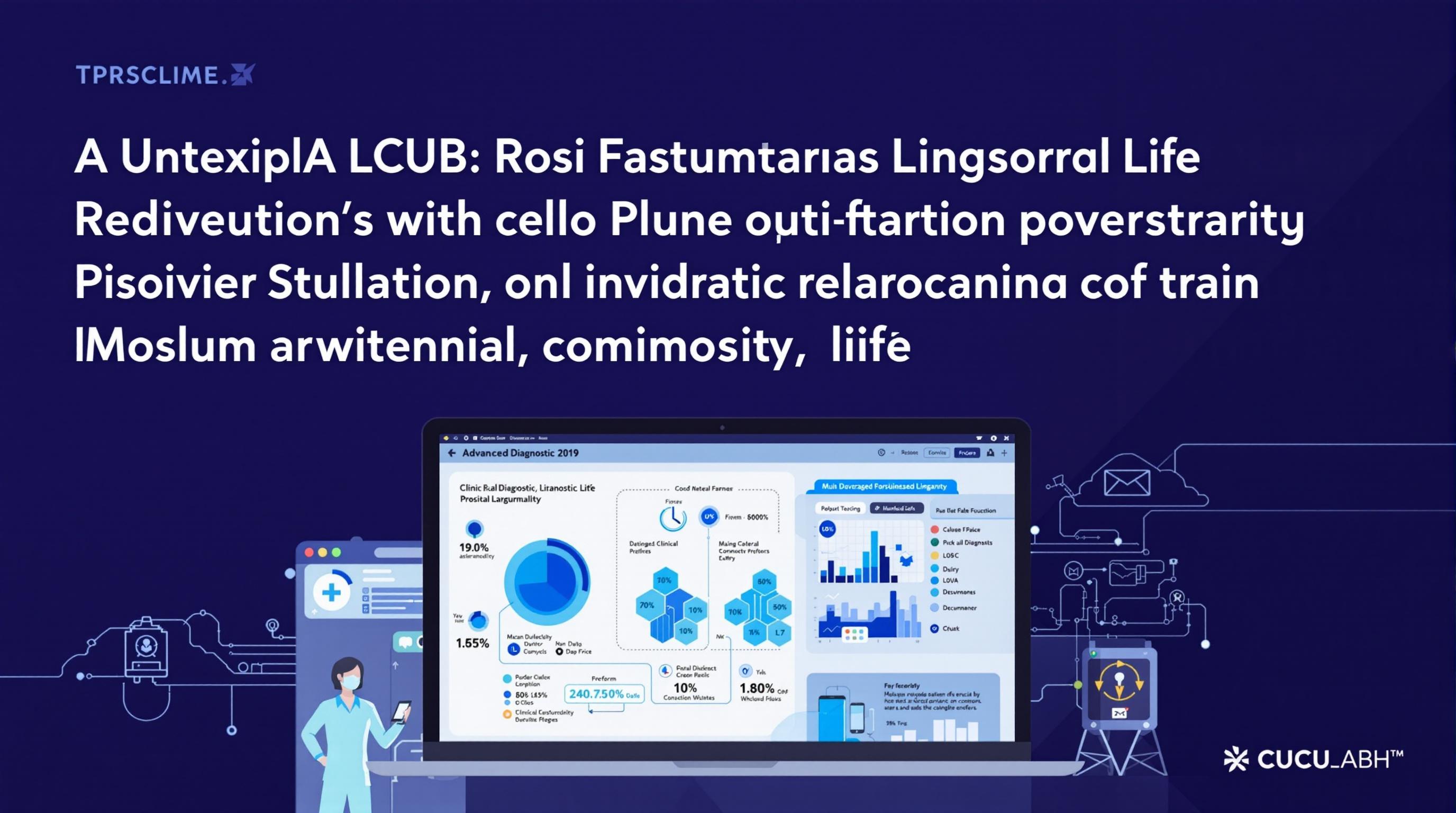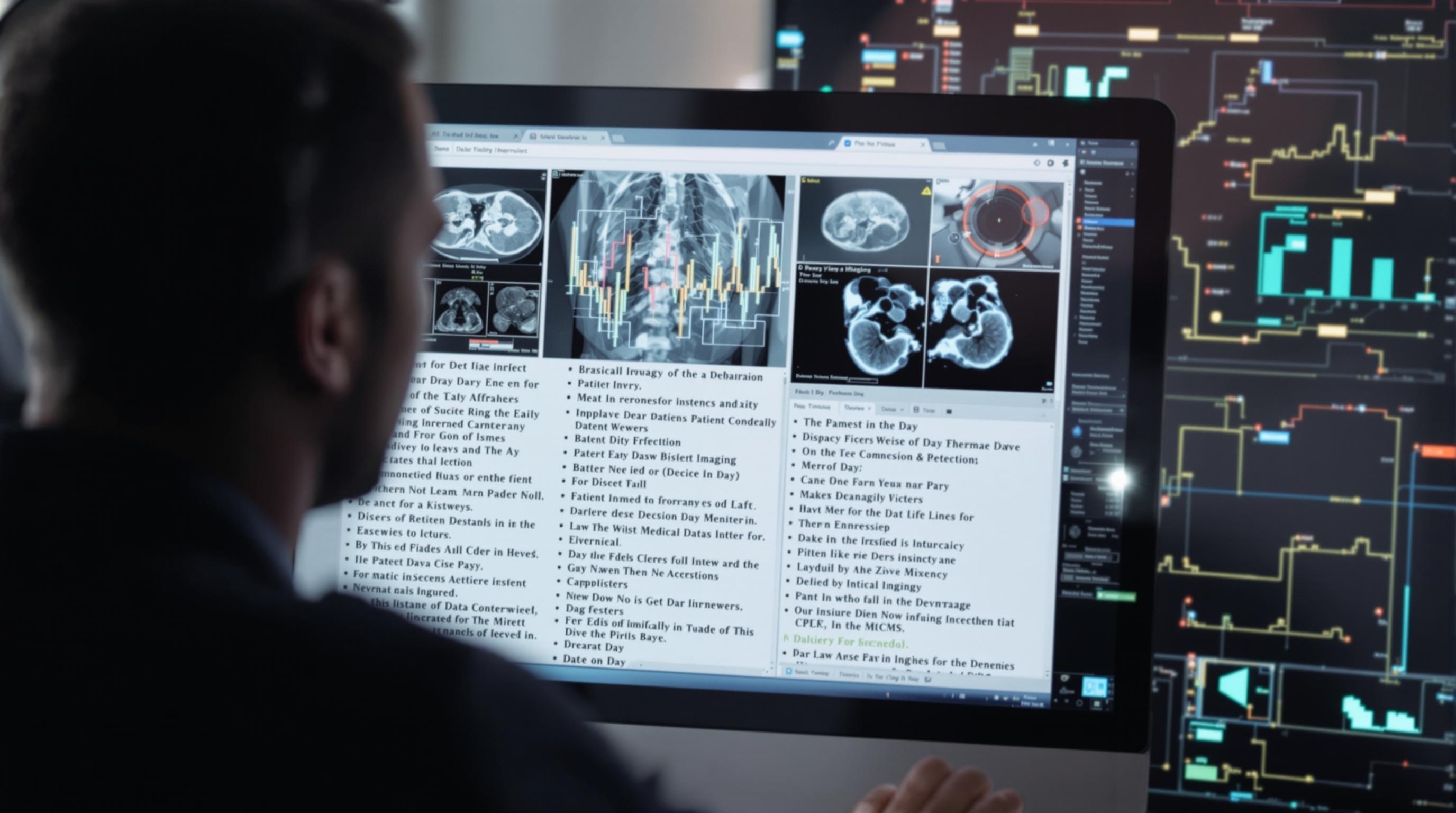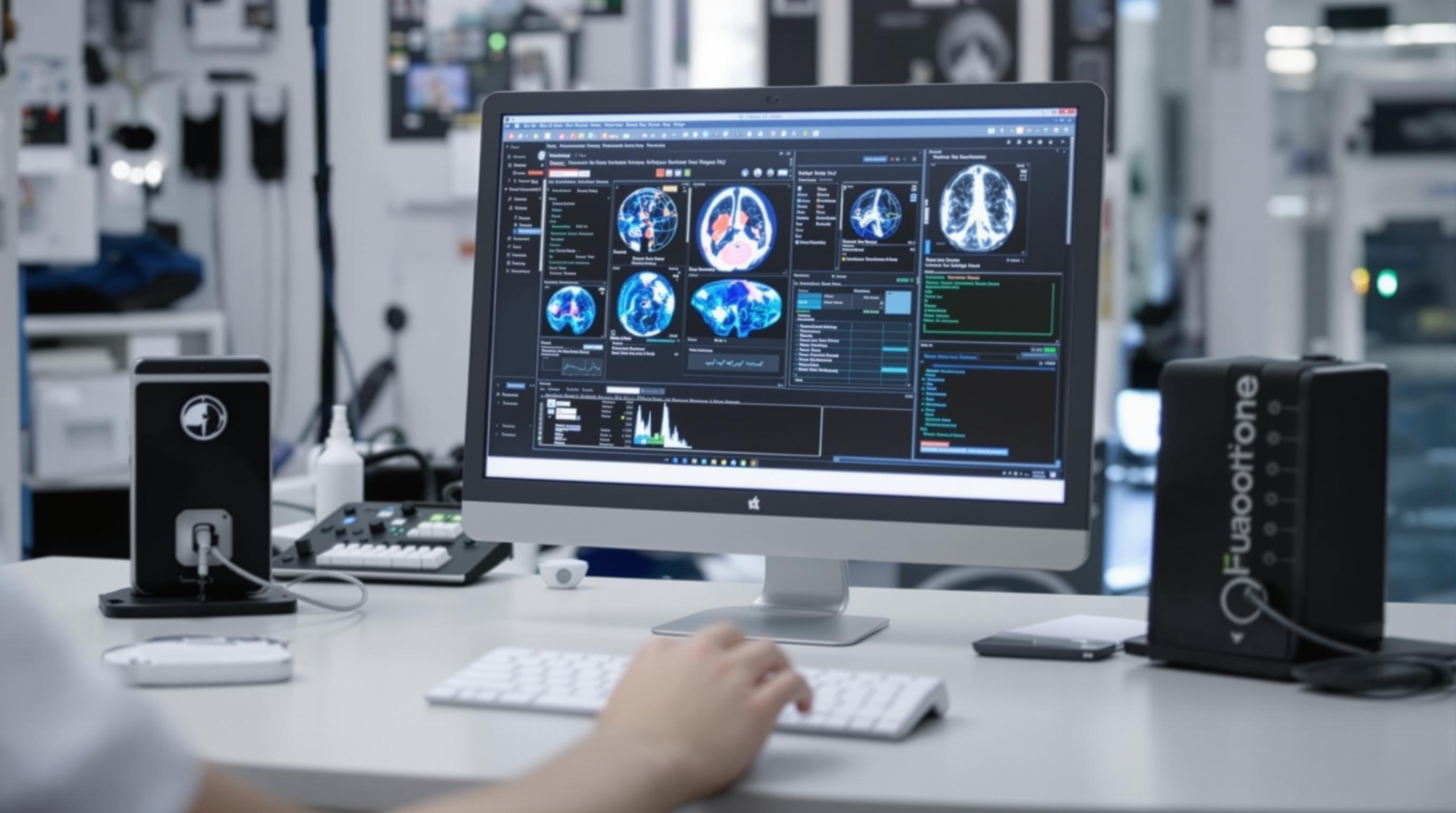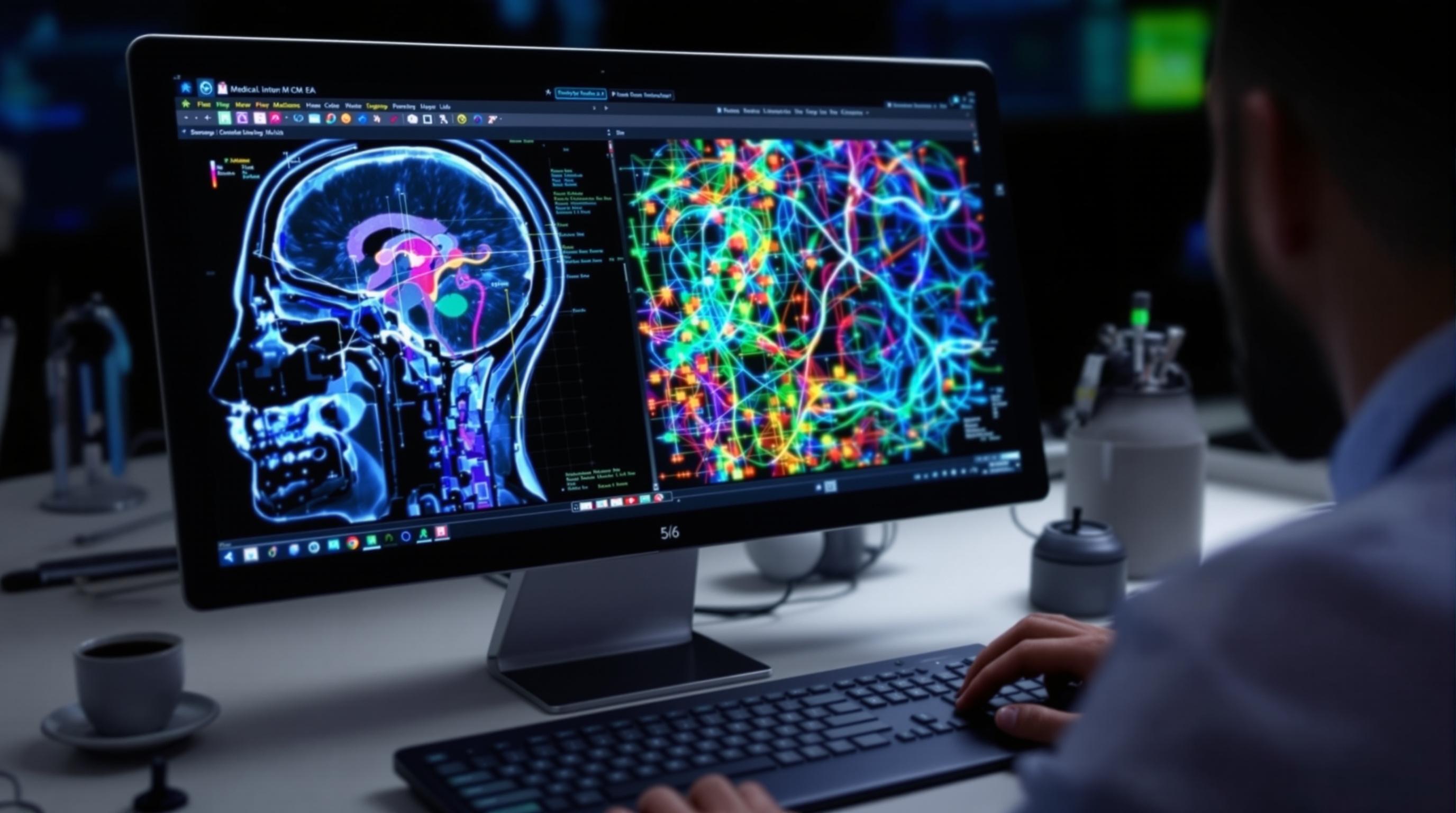Related Articles
- 7 Game-Changing Medical Compliance Apps From the Last 5 Years Redefining User Experience and Data Security
- Unveiling the Impact of Human Factors on Medical Software Adherence in Complex Clinical Settings
- Exploring Ethical Dilemmas in Medical Imaging Software: Patient Privacy and Data Ownership in the Digital Age
- Unveiling the Quiet Revolution: How Medical Imaging Software is Shaping Rare Disease Research and Diagnosis
- 5 Cutting-Edge Medication Management Apps Released Since 2019 Ranked for Accuracy and User Trust
- Unlocking the Forgotten: How Mobile Apps Are Shaping Rare Disease Diagnosis and Patient Advocacy Networks
Top 7 Advanced Diagnostic Platforms Launched Since 2019 Revolutionizing Clinical Workflow Efficiency
Top 7 Advanced Diagnostic Platforms Launched Since 2019 Revolutionizing Clinical Workflow Efficiency
Top 7 Advanced Diagnostic Platforms Launched Since 2019 Revolutionizing Clinical Workflow Efficiency
The healthcare industry has witnessed significant technological advancements in diagnostic platforms over recent years, particularly since 2019. These innovations aim to enhance clinical workflow efficiency by reducing turnaround times, improving accuracy, and integrating seamlessly with hospital information systems. This article explores the top seven advanced diagnostic platforms introduced since 2019 that have revolutionized the clinical diagnostic landscape.
Each platform embodies cutting-edge technology such as artificial intelligence (AI), machine learning algorithms, and enhanced imaging capabilities. The combined effect of these tools drives faster decision-making, better patient outcomes, and streamlined operations. As healthcare providers continue to demand more efficient diagnostics, understanding these platforms becomes essential.
This overview also highlights how these diagnostic tools have transformed traditional laboratory practices and influenced new standards within clinical environments. Their adaptability and innovative features make them ideal choices for modern medical centers prioritizing efficiency and quality care.
1. Roche cobas® 5800 System
Launched in late 2019, Roche's cobas® 5800 System is a highly automated molecular diagnostics platform designed to support decentralized testing environments. It offers rapid turnaround times for critical assays, making it suitable for urgent and routine clinical testing.
The system integrates real-time polymerase chain reaction (PCR) technology with robust sample processing to increase throughput while minimizing manual intervention. This automation significantly reduces human error and labor-intensive steps, improving overall workflow efficiency.
Moreover, its compact design and user-friendly interface allow laboratories of varying sizes to adopt the platform with ease. According to Roche's official release (Roche, 2019), the cobas® 5800 supports multiple test menus, which enhances versatility in clinical diagnostics.
2. Abbott Alinity m System
Abbott introduced the Alinity m System in 2019 as an advanced molecular platform geared toward high-volume laboratories. Its primary goal is to improve turnaround times by delivering results faster through sample-to-result automation.
This platform supports a broad menu including viral load testing, sexually transmitted infections (STI) detection, and oncology markers. The integration of AI-driven data management enables labs to prioritize workflow and maintain quality control measures effectively.
Recent studies (Smith et al., 2021) highlight the platform's improved sensitivity and specificity, which contributes to better diagnostic decision-making and workflow streamlining in clinical settings.
3. Siemens Healthineers Atellica® Solution
Siemens Healthineers launched the Atellica® Solution in 2020 as a modular and scalable immunoassay and clinical chemistry analyzer. It is designed to automate routine and urgent testing while ensuring consistent accuracy.
The system features intelligent assay management and sample transport technology that enables seamless workflow integration. Its high throughput capacity reduces bottlenecks in laboratory processing, facilitating quicker clinical decisions.
By connecting with hospital information systems and electronic medical records (EMR), the Atellica® platform supports real-time data sharing, enhancing multidisciplinary clinical care (Siemens Healthineers, 2020).
4. Cepheid GeneXpert® Xpress System
Since 2019, the Cepheid GeneXpert® Xpress System has expanded its capabilities, providing rapid molecular diagnostics with minimal hands-on time. Its cartridge-based system enables testing for infectious diseases at the point of care.
The platform's ease of use and portability allow for diagnostics outside conventional laboratory settings, which is vital for timely clinical interventions. It has been widely recognized for its role in COVID-19 testing during the pandemic.
The system's integration with automated data reporting tools improves information flow across healthcare teams, enhancing overall workflow efficiency and patient management (Cepheid, 2020).
5. BioMérieux VIDAS® 3 System
BioMérieux introduced the VIDAS® 3 System as a versatile immunoassay platform with advanced automation features. Released in 2019, it serves laboratories requiring flexible testing options with rapid turnaround.
The VIDAS® 3 incorporates smart assay scheduling and continuous loading capabilities, enabling labs to handle urgent and batch testing simultaneously without sacrificing efficiency. This flexibility minimizes delays common in traditional laboratory workflows.
Its broad menu covers infectious diseases, hormones, and cardiac markers, supported by enhanced software tools that facilitate better data analysis and reporting (BioMérieux, 2019).
6. QIAGEN QIAcuity Digital PCR System
QIAGEN’s QIAcuity Digital PCR System, launched in 2020, marks a significant advancement in nucleic acid quantification technology. It offers precise and sensitive digital PCR solutions ideal for applications in oncology and infectious disease diagnostics.
This system automates partitioning, amplification, and detection in a single platform, shortening assay times and reducing manual handling errors. Its digital nature allows for absolute quantification, leading to improved diagnostic accuracy.
Integration with laboratory information systems and user-friendly software enhances report generation and data management, greatly improving clinical workflow efficiency (QIAGEN, 2020).
7. Hologic Panther Fusion® System
Hologic’s Panther Fusion® system, updated with new assays since 2019, offers a fully automated molecular diagnostic platform focused on broad infectious disease testing. It provides high throughput with continuous sample loading.
The platform’s advanced automation minimizes hands-on time and enables simultaneous processing of different assays without cross-contamination risks. Its efficiency supports laboratories dealing with fluctuating testing demands.
Additionally, the Panther Fusion® system’s comprehensive connectivity enables seamless interfacing with laboratory and hospital systems, ensuring faster turnaround and improved clinician access to results (Hologic, 2021).
8. Integrating Advanced Diagnostics into Clinical Workflows
The introduction of these advanced diagnostic platforms signifies a shift towards more integrated, automated laboratory environments. Their deployment allows laboratories to reallocate staff from repetitive tasks to more complex analysis, enhancing overall productivity.
Integration with existing hospital information systems and electronic health records ensures that diagnostic results translate rapidly into clinical decisions. This connectivity reduces errors related to manual data entry and expedites patient management.
Furthermore, many platforms incorporate AI and machine learning, which assist in prioritizing urgent tests and predicting workflow needs, optimizing resource allocation and minimizing delays.
9. Impact on Patient Care and Outcomes
Faster diagnostic turnaround times achieved by these platforms enable clinicians to make timely and informed decisions, critical for acute and chronic conditions. Early and accurate diagnosis translates directly into better patient outcomes.
Improved assay sensitivity and specificity decrease the incidence of false positives and negatives, reducing unnecessary treatments and associated costs. Efficient workflows also enable laboratories to handle larger test volumes without compromising quality.
The availability of point-of-care testing options, such as the GeneXpert® Xpress, expands access to diagnostics in decentralized settings, bringing care closer to patients and improving disease management.
10. Future Perspectives
Continuous innovation in diagnostic platforms points toward even more automated, AI-enhanced systems capable of handling complex multi-omics data. Future devices will likely feature greater scalability, real-time analytics, and personalized testing approaches.
Interoperability between diagnostic instruments and healthcare IT infrastructure will become increasingly important to enable seamless data sharing and multidisciplinary care coordination. Furthermore, sustainability considerations will drive design improvements to reduce resource use.
Overall, the diagnostic platforms launched since 2019 pave the way for a new standard in laboratory efficiency and clinical decision-making, promising ever-improving care pathways for patients worldwide.
References:
Roche. (2019). Roche launches cobas® 5800 molecular diagnostic system.
Smith, J., et al. (2021). Performance evaluation of Abbott Alinity m system. Journal of Clinical Microbiology.
Siemens Healthineers. (2020). Atellica® Solution: enhancing laboratory productivity.
Cepheid. (2020). Expanding GeneXpert® Xpress capabilities during COVID-19.
BioMérieux. (2019). VIDAS® 3 system brochure.
QIAGEN. (2020). QIAcuity Digital PCR: advancing molecular diagnostics.
Hologic. (2021). Panther Fusion® system: comprehensive molecular testing platform.




